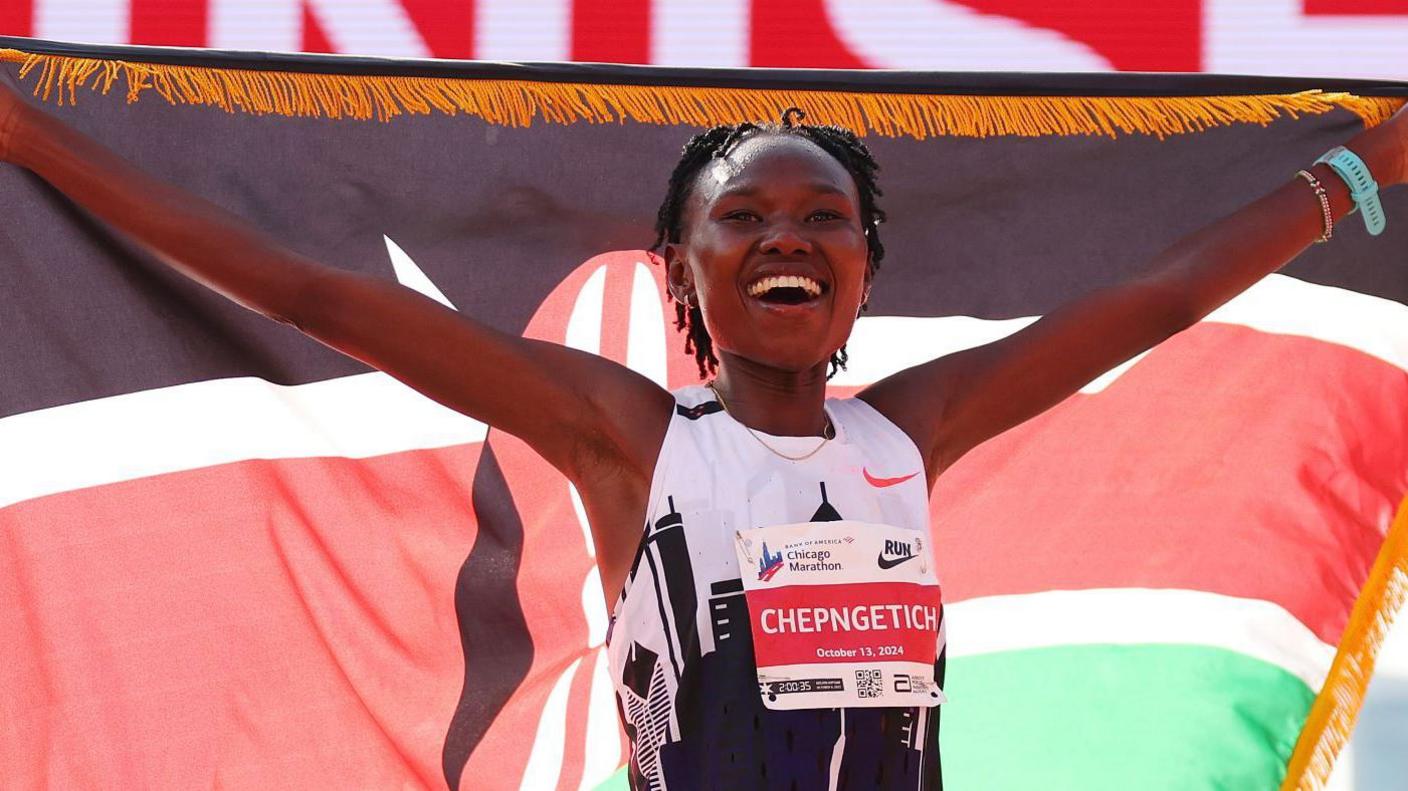Ruth Chepngetich, a Kenyan who admitted breaking the anti-doping rules, has been banned for three years.
Following a positive test for hydrochlorothiazide (a prohibited diuretic used frequently as a masking agent), Chepngetich was provisibly suspended in July on March 14.
Chepngetich’s accomplishments, including her world-record two hours, nine minutes, and 56 seconds in Chicago in October 2024, will still be remembered.
The 31-year-old’s sentence was reduced to three years because she admitted to the violations despite the request for a four-year ban from the Athletics Integrity Unit (AIU).
However, Chepngetich’s phone’s evidence, including messages dating back to 2022, indicates “reasonable suspicion that her positive test may have been intentional,” the AIU will continue to look into it.
Nobody is above the law, according to the saying.
Chepngetich, the first woman to complete a marathon in less than 2:10 during an interview with the AIU in April, was unable to explain why the test was positive.
Chepngetich’s sample had an estimated concentration of 3,800 ng/mL, compared to the HCTZ’s minimum reporting level of 20 nanograms per milliliter (ng/mL) in urine.
A sample taken from Chepngetich two weeks earlier, on February 28, also revealed HCTZ residues that were below the required reporting level.
The above-mentioned suspicious evidence was presented to Chepngetich at a later interview on July 11th. The AIU had also refuted contamination in the interim.
Chepngetich’s explanation changed on July 31 when she claimed she had taken her housemaid’s medication, which was labeled as being HCTZ, after becoming ill two days before the positive test results.
According to the AIU, there are “serious reservations about the credibility of the new version of events,” and such “recklessness” is regarded as “indirect intent, for which an increased four-year sanction is applicable in the context of the sport’s anti-doping laws.
After Chepngetich admitted breaking the anti-doping rule within the 20-day deadline, an automatic one-year reduction was implemented.
The athlete’s results, awards, titles, appearances, and prize money have been forfeited since March 19th, the three-year ban took effect when Chepngetich accepted a voluntary provisional suspension.
The case, according to AIU Chair David Howman, underscored the idea that “nobody is above the laws.”
This is how the system is supposed to operate, according to Howman, despite the disappointment of those who placed their trust in this athlete.
related subjects
- Athletics
Source: BBC

Leave a Reply